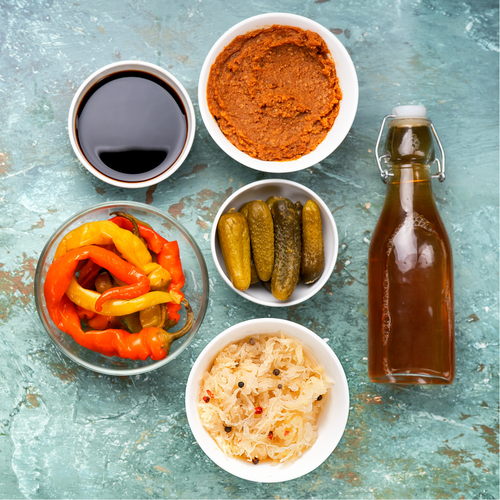Everyone has their say on the “right” way to manage their diet. Yet, we are all different: in our ages, sizes, weights, where we live, our lifestyles, our customs… Why should there be just one way to eat, with universal codes?
It is therefore very complicated to find your way around, a person's diet often changes throughout their life, and that's a good thing, monotony is not beneficial in a diet. The most important thing is to be in phase with it and to avoid harmful eating behaviors as much as possible.
Here are some mistakes you should avoid making to start the year on the right foot:
#1 - No more weight loss diets
No matter what the latest miracle method you've heard about, it won't work long-term, won't be healthy, and may even be dangerous.
The principle of weight-loss diets is almost always the same. They are based on a low-calorie diet and the elimination of one or more food categories deemed incompatible with weight loss. These two points are easy to invalidate:
- A low-calorie diet over a given period of time will never guarantee lasting weight loss. Indeed, undereating while dieting will surely make you lose a few pounds, but it is impossible to undereat compared to your real needs over a lifetime. So once you return to a normal diet in terms of calories, it is the inevitable "yo-yo effect", with the regaining of the lost pounds, or even more! For lasting weight loss, it must be done gently, so that the body adapts little by little to these new dietary changes, which should not be drastic, so as not to put it in a state of deprivation.
- Eliminating one or more food categories, in addition to being completely unnecessary because our body needs each of them, can be truly harmful to the body. This leads to an imbalance in macronutrient intake, which we greatly need for the balance of our physiological functions. Micronutrient deficiencies are also to be expected. All of these factors can have physical and psychological consequences on health, and even lead to more serious pathologies.
ANSES has also strongly advised against weight-loss diets, citing some of them in one of its reports. If you want to start losing weight, it's best to consult a dietitian.
#2 - Limit or eliminate starchy foods and bread
For many people, starchy foods and bread should be limited. However, they represent the main source of carbohydrates, an essential macronutrient since they are supposed to represent 40 to 55% of the daily nutritional intake. What's more, these are complex carbohydrates, which do not negatively impact blood sugar, unlike simple carbohydrates.
Used as a substrate in many metabolic pathways, they also help you feel full throughout the day, and therefore not crave less essential foods.
#3 - Use any fat for cooking
Fats react to heat! Oils contain different fatty acids, in different amounts, which means they do not all behave the same way when exposed to heat. For each oil, a smoke point has been identified, i.e., a temperature beyond which the fatty acid composition will change (very often into harmful fatty acids). For cooking, the most suitable oil, due to its lipid profile and smoke point, is rapeseed oil!
#4 - Only drink when you are thirsty
Most people only drink during meals and when they're thirsty. However, when you're thirsty, you're already dehydrated. Water is essential; it aids digestion, transports essential compounds throughout the body, helps maintain a healthy body temperature, and promotes the elimination of toxins. So, make it a point to drink the recommended 1.5 to 2 liters of water per day; the trick is to drink a 1-liter bottle between meals, keeping it close at hand, prominently displayed on your desk, for example. It's best to drink between meals because water ingested during meals dilutes digestive juices and triggers satiety more quickly than it should, which can lead to between-meal cravings.
#5 - Sacrificing pleasure
Eating is vital, but it's also a pleasure! We have taste buds for a reason. A healthy diet is a balanced diet, but also one that doesn't leave room for frustration. If there is, it's because you're stuck in an unsustainable eating pattern. It may take time, but the most important thing is to find a balance between health and pleasure. Little by little, we often develop a taste for it, and the two then go hand in hand!
Sources:
[1] Weight-loss diets | Anses - French National Agency for Food, Environmental and Occupational Health Safety. (2019). Accessed December 28, 2021, at https://www.anses.fr/fr/content/r%C3%A9gimes-amaigrissants















